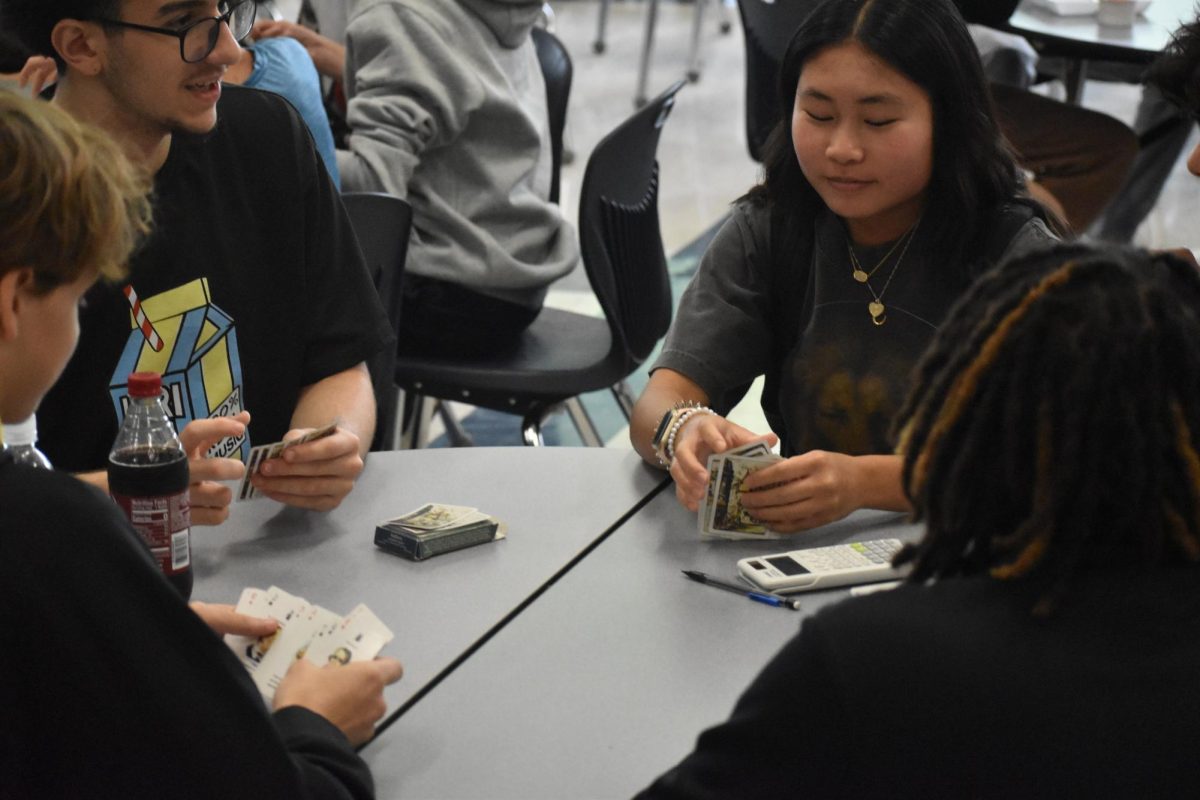Most teenagers spend an average of 8 hours and 40 minutes on their phones. That is almost 9 out of 16 hours in the day we are awake, we spend scrolling or on useless apps.
Since the phone was invented, there has been a constant battle with phones in classrooms. It’s the classic “machine vs. man.” And so far, machines seem to be winning, working their way into every aspect of our lives.
The state of Missouri seems to want to combat this dilemma by removing phones from classrooms.
In Jefferson City, a new bill has been introduced that would limit the use of cell phones in classrooms. Cell phones will not be banned outright, but Senate Bill 68, if passed, would require schools to have some rule in place to limit the use of cell phones in the educational environment.
However, the Parkway School District is also coming up with its own cell phone ban. The Board of Education will be voting on the issue on April 16. The district collected surveys on faculty, students, and parents on their opinions on phones at school. The data showed that parents and teachers agreed on most things, while students opted for the option where they get the most screen time during the school day. On April 16 the BOE will officially vote, but the consensus is that students will put their phones up during class but can use them during passing periods and lunch. If these rules are not followed, there will be consequences.
AP Human Geography teacher Adam Wiess highlights some advantages of having a phone in a classroom.
“Using some sort of phone app that can enhance the content or the curriculum or the lesson. There are definitely benefits to having cell phones in the educational environment. It’s just like I said, time and place,” he said.
However, the state seems to think that the cons far outweigh the pros, and it seems that Missouri students’ time with cell phones in class is coming to an end no matter how this shakes out.
Freshman Cassidy Neu said she thinks a Missouri ban on cell phones in schools will only contribute to the already present tension between students and the administration.
“I feel like if a teacher finds phones to be fine in their classroom, I feel like they should be able to have phones in their classroom, and I think it’s working against the administration. I feel like they’re shooting themselves in the foot a little bit because people already don’t like them,” Neu said.
Art teacher Tracy Parkhurst expresses the same concern, worrying about the conflicts that may present themselves due to the policy. She worries that because of the new policy, kids will start sneaking their phones into class, causing disruption, conflict, and losing class time, and wasting it fighting with students instead of teaching.
Not only will teachers and students be affected, so will parents. Many teachers said they use their phones to communicate with their own kids during school hours and would worry about not having a quick and easy way to get in contact with them.
Overall, the new policy Parkway is considering is already causing conflict.
“I feel like we certainly survived before when we had to go find a landline and call people, so yeah, we can do it,” Parkhurst says.










!["I really like to be involved in things, even though I don't have much time to do anything. I try to involve myself in school as much as possible. When I get older I want to join the Air Force, but I have to do a lot of training [in order to do this] and you have to be able to do a lot of conditioning to get in. Managing my time is one of my biggest struggles, but there [are] a lot of things I want to do [so I make time] to do them. My biggest advice for someone who is having trouble managing their time is to pick the things you really love and stick with those things."](https://psouthtreaty.com/wp-content/uploads/2025/10/DSC_5081-843x1200.jpg)



